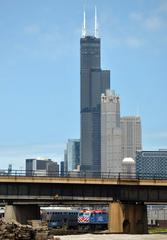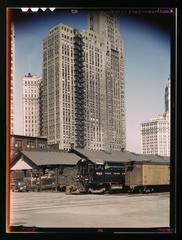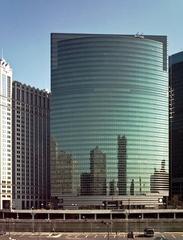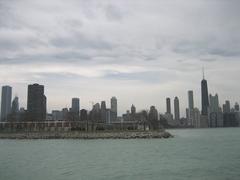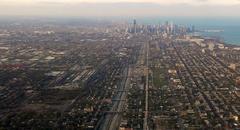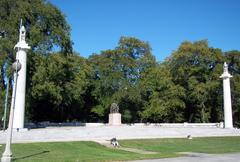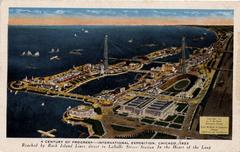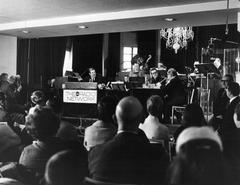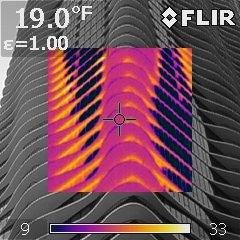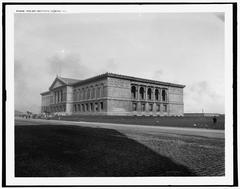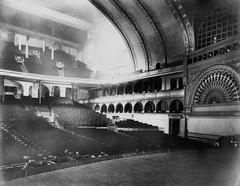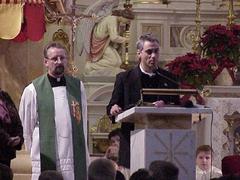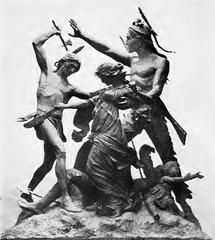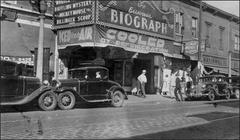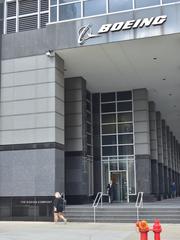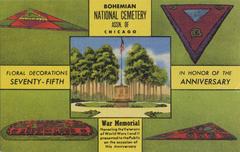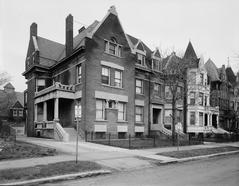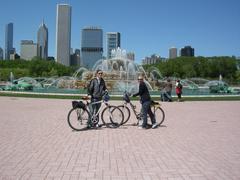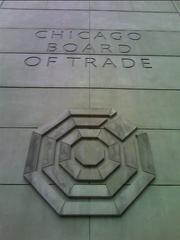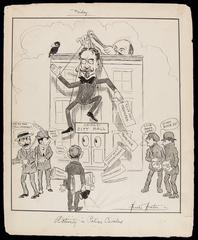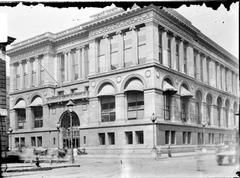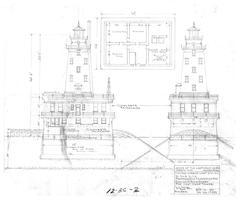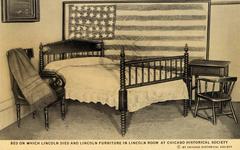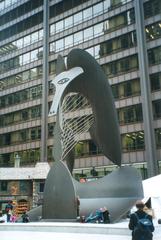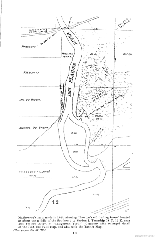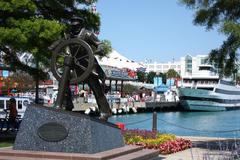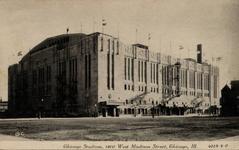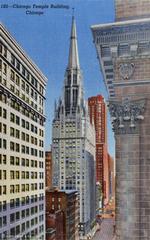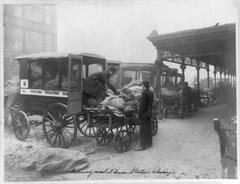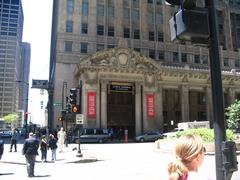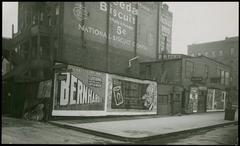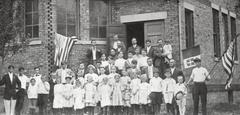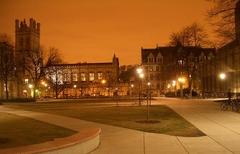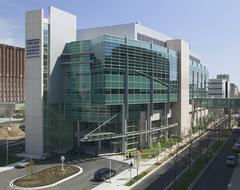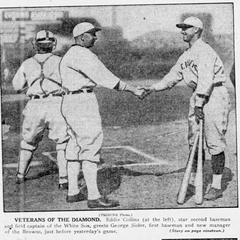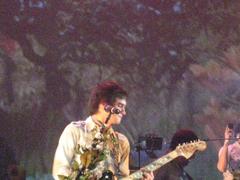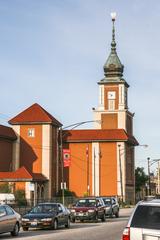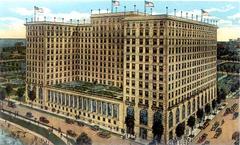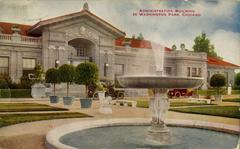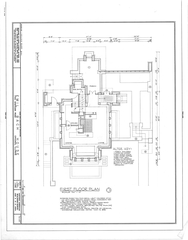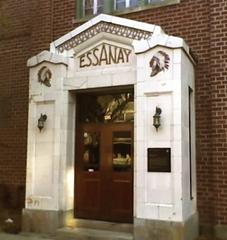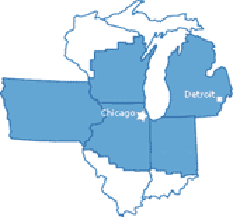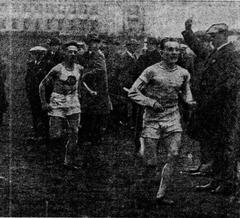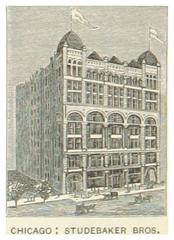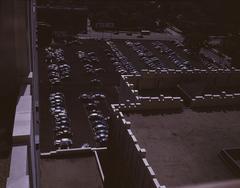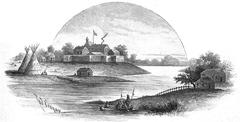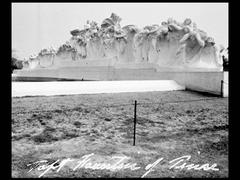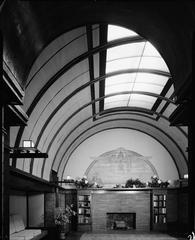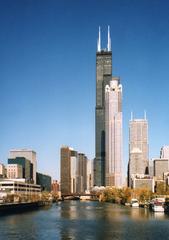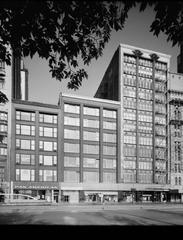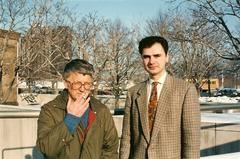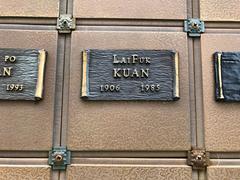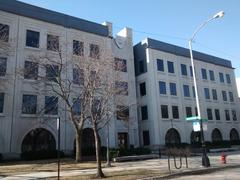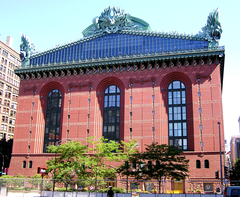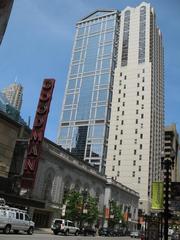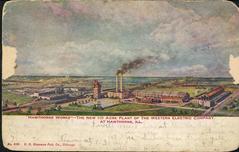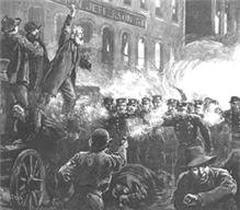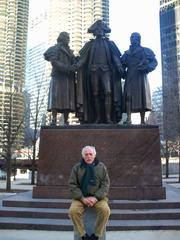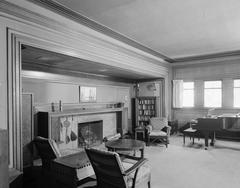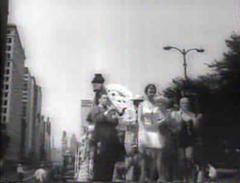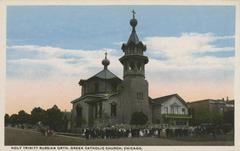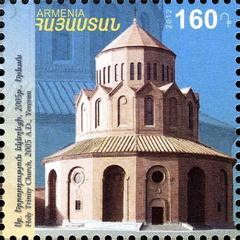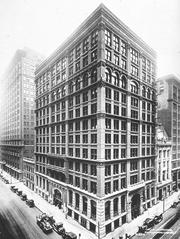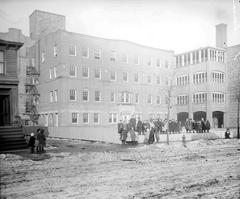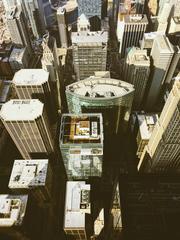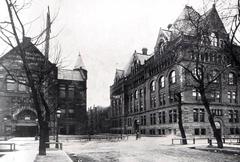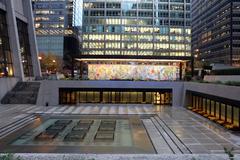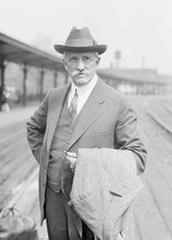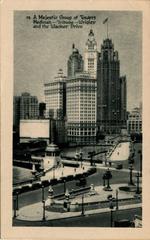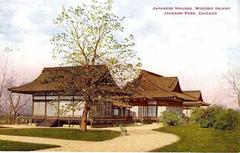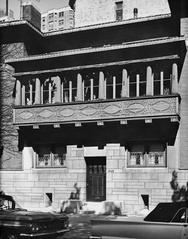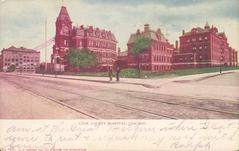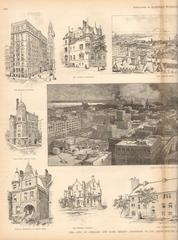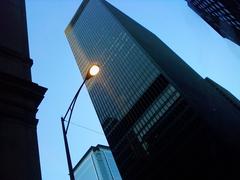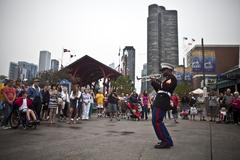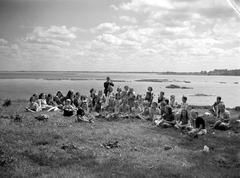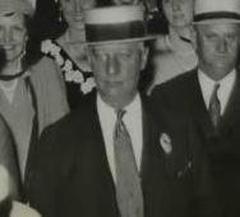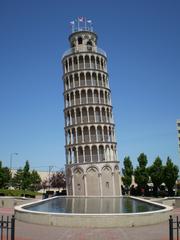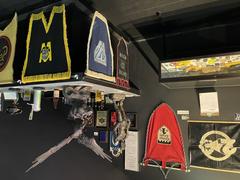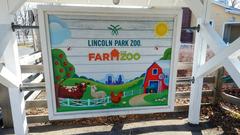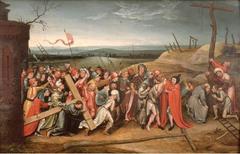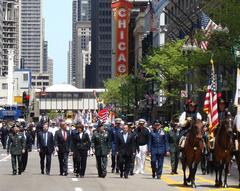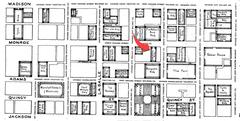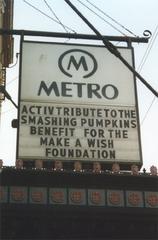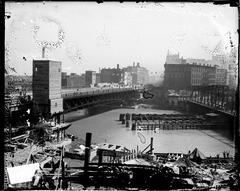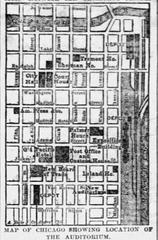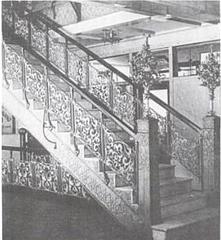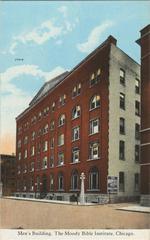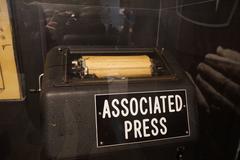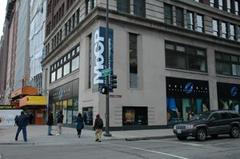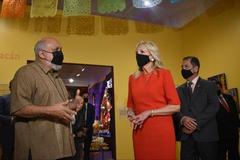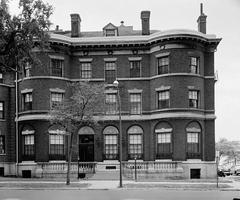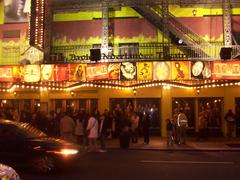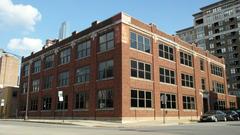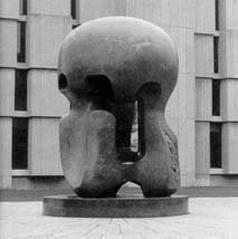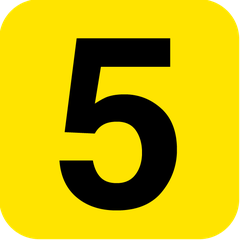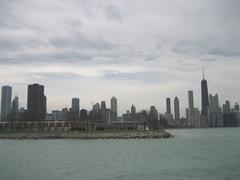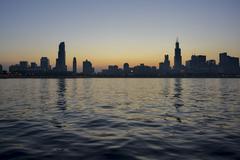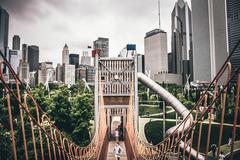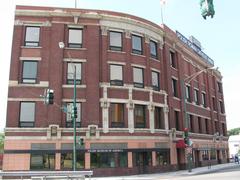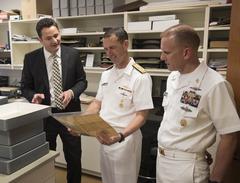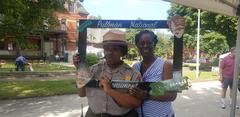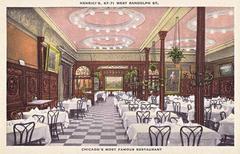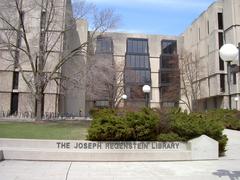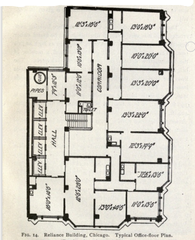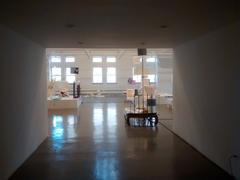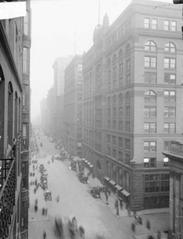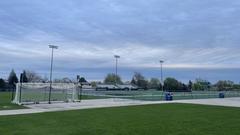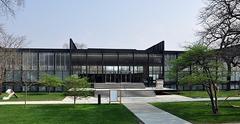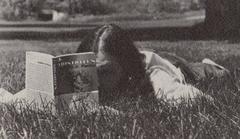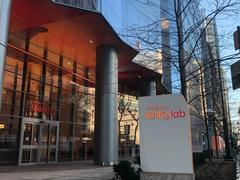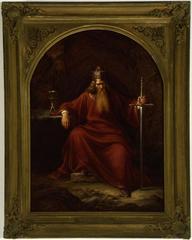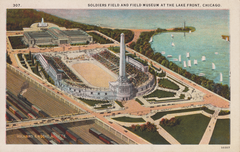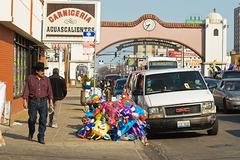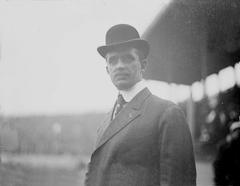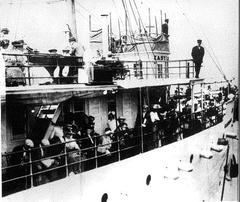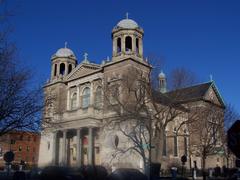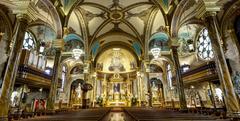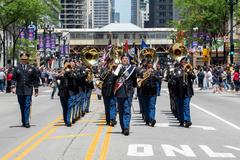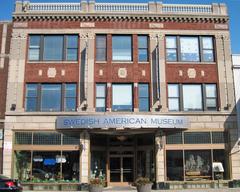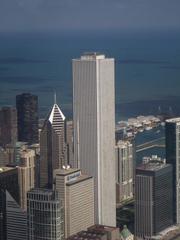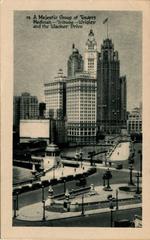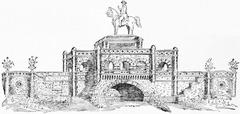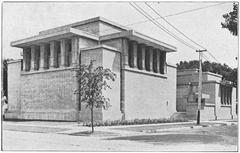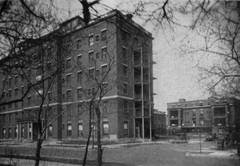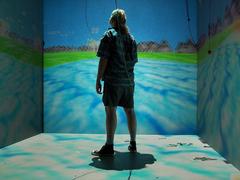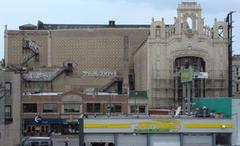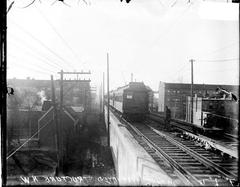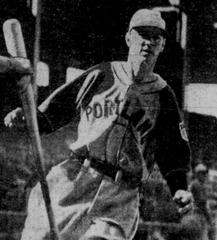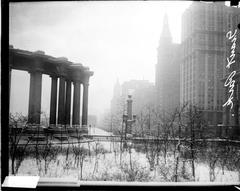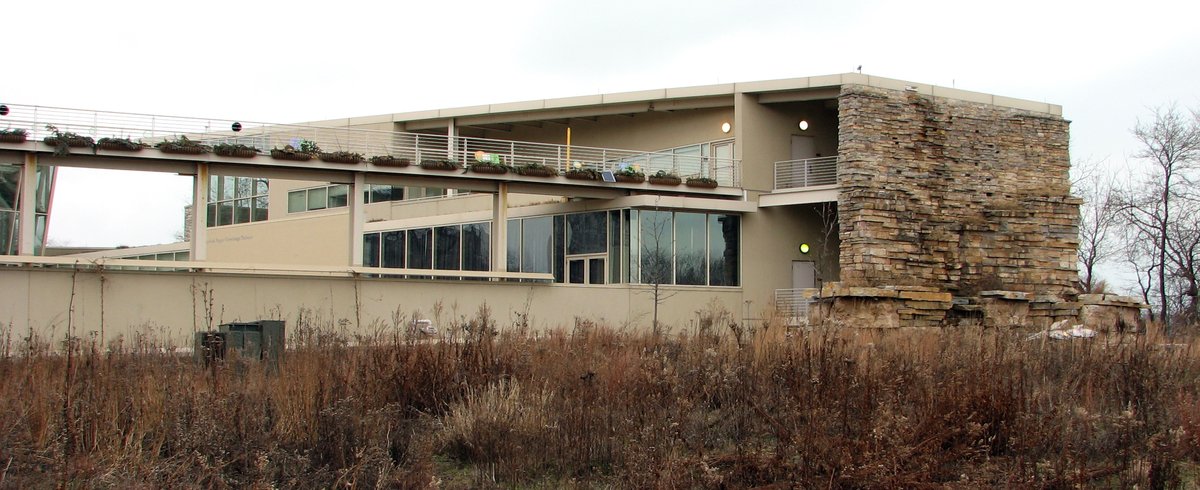
Peggy Notebaert Nature Museum: Visiting Hours, Tickets, and Chicago Historical Sites Guide
Date: 15/06/2025
Introduction
Located in the heart of Chicago’s Lincoln Park, the Peggy Notebaert Nature Museum is a cornerstone of urban nature, environmental education, and community engagement. As the public face of the Chicago Academy of Sciences, founded in 1857, it is both the city’s oldest museum and a modern hub for exploring Illinois’ native ecosystems. With acclaimed exhibits like the Judy Istock Butterfly Haven, interactive science displays, and scenic nature trails, the museum fosters ecological literacy and inspires stewardship in all visitors. Whether you’re seeking an educational adventure, planning a family outing, or exploring Chicago’s historical sites, the museum offers an experience that connects people with nature and the city’s rich environmental heritage (Chicago Collections, Perkins&Will, CASPNNM Annual Report FY23).
Table of Contents
- Introduction
- History and Significance
- Visiting Information
- Key Exhibits and Attractions
- Accessibility and Inclusivity
- Special Events and Guided Tours
- Educational Programs and Community Engagement
- Sustainability and Conservation
- Visitor Tips and Photographic Spots
- Frequently Asked Questions (FAQ)
- Conclusion and Resources
History and Significance
Historical Foundations
The museum’s roots trace back to the Chicago Academy of Sciences, founded in 1857 by scientists passionate about nature and science education. The early Academy amassed an extensive natural history collection through field research across the Midwest and beyond (Chicago Collections). Despite setbacks like the Great Chicago Fire of 1871, the institution rebuilt and evolved, ultimately opening the Peggy Notebaert Nature Museum in 1999 as a modern, accessible space in Lincoln Park (Perkins&Will).
Mission and Vision
The museum’s mission is to foster a positive relationship between people and nature through education, research, collections, and public forums (Loyola SES). Programs promote ecological literacy, inspire conservation values in urban communities, and make nature accessible to all. The museum is a leader in environmental education, providing more direct teaching hours to students than any other Chicago museum (CASPNNM Annual Report FY23).
Visiting Information
Location and Hours
- Address: 2430 N. Cannon Drive, Chicago, IL 60614
- Standard Hours: Tuesday–Sunday, 9:30 AM–4:30 PM; closed Mondays and major holidays (Nature Museum Official Site)
- Extended/Special Hours: Check the official website for updates and holiday schedules.
Tickets & Admission
- Adults (18–64): $12
- Seniors (65+), Students (with ID), Military: $9
- Children (3–17): $6
- Children under 3: Free
- Illinois residents: Discounted/free admission on certain days (see ticket page)
- Illinois school groups: Free with advance reservations
Tickets can be purchased online or at the entrance. Advance purchase is recommended during weekends and holidays.
Getting There & Parking
- Public Transit: CTA buses #136 and #151 stop nearby; Red and Brown Line trains are within walking distance.
- Parking: Metered street parking and nearby lots (Lincoln Park Zoo lot recommended); fees apply. Arrive early on weekends and holidays for easier parking.
Key Exhibits and Attractions
Judy Istock Butterfly Haven
A 2,700-square-foot glass-domed greenhouse, home to over 1,000 butterflies from more than 40 species and lush tropical flora. Experience the butterfly life cycle up close in one of Chicago’s most photogenic spots (Nature Museum Exhibits).
Nature’s PlaySpace
An interactive play area for toddlers and preschoolers, designed for sensory engagement and discovery, with nature-themed activities and tactile exhibits (Nature Museum Exhibits).
Deb Lahey Nature Trails & Micole Birdwalk
Accessible outdoor trails wind through restored prairies, wetlands, and woodlands, offering opportunities for wildlife viewing and panoramic cityscape vistas (Nature Museum Exhibits).
Additional Highlights
- Birds of Chicago: Dioramas and audio experiences featuring 100+ native bird species.
- Wilderness Walk: Immersive recreation of pre-urban Chicago habitats.
- Istock Family Look-In Lab: Behind-the-scenes animal care.
- Beecher Collections Laboratory: Watch scientists catalog specimens.
- Sustainability Center: Learn about eco-friendly living.
- RiverWorks: Hands-on exhibit about water systems.
- Live Animal Presentations: Meet reptiles, birds, and mammals with naturalists.
Accessibility and Inclusivity
The museum is deeply committed to accessibility:
- Wheelchair-accessible entrances, elevators, and restrooms
- Sensory kits and social guides for sensory-sensitive visitors
- Sensory Friendly Mornings on select dates
- Service animals welcome
- Early access hours for quieter visits (Accessibility Information)
Special Events and Guided Tours
- Seasonal events: Nature walks, workshops, family festivals, and temporary art/science exhibits.
- Guided tours: Available for groups and schools by appointment, led by knowledgeable educators (Nature Museum Exhibits).
Educational Programs and Community Engagement
K–12 and Youth Education
- Reaches over 35,000 students annually, focusing on underserved communities (Education and Programs Team).
- Inquiry-based, hands-on learning aligned with Next Generation Science Standards (Partner Teacher Conference).
Professional Development
- Annual Partner Teacher Conference and educator workshops focus on conservation, research, and social-emotional learning (Partner Teacher Conference).
Teen, Young Adult, and Community Science
- Programs like the Chicago Conservation Corps (C3) and citizen science projects engage teens and the public in environmental leadership and research (Education and Programs Team).
Volunteer and Outreach
- Volunteers support public programs, animal care, and outreach, with an emphasis on inclusivity and skill development.
- Outreach includes bilingual resources and equitable programming for underserved communities (Chicago Academy of Sciences | Peggy Notebaert Nature Museum).
Sustainability and Conservation
Sustainability is a core value, reflected in both operations and exhibits:
- The museum’s landscape recreates native habitats—a living educational resource (Perkins&Will).
- Conservation programs support local turtles, snakes, and other species (Loyola SES).
- A new Sustainability Center will expand outreach and education (CASPNNM Annual Report FY23).
Visitor Tips and Photographic Spots
- Best times: Weekday mornings for a quieter experience; check the calendar for special events.
- What to bring: Comfortable shoes, camera, and weather-appropriate attire.
- Amenities: Stroller rental, coat check, lactation room, and a gift shop.
- Photography: Personal photography is permitted; flash and large equipment are restricted.
Frequently Asked Questions (FAQ)
Q: What are the museum’s visiting hours?
A: Tuesday–Sunday, 9:30 AM–4:30 PM; closed Mondays and major holidays.
Q: How much are tickets?
A: Adults $12, seniors/students/military $9, children 3–17 $6, children under 3 free; discounts for Illinois residents on select days.
Q: Is the museum accessible?
A: Yes, with wheelchair access, sensory accommodations, and service animal policies.
Q: Are guided tours available?
A: Yes, for groups and schools by appointment.
Q: Is parking available?
A: Yes, metered street parking and Lincoln Park Zoo lots nearby; fees apply.
Q: What are the top exhibits for families?
A: Judy Istock Butterfly Haven, Nature’s PlaySpace, and live animal programs.
Q: Can I bring food?
A: Outside food is not allowed, but snacks are available in the Museum Store.
Conclusion and Resources
The Peggy Notebaert Nature Museum stands as a vibrant sanctuary for Chicagoans and visitors, offering immersive natural experiences, world-class education, and a gateway to the city’s ecological heritage. Whether you’re exploring the iconic Butterfly Haven, participating in hands-on programs, or simply enjoying the tranquil nature trails, your visit supports conservation and community stewardship.
Plan your visit today:
- Official Website
- Tickets & Events
- Accessibility Information
- Education & Programs
- Partner Teacher Conference
- Social Media: Facebook, Twitter, Instagram
Further Reading & Sources:
- Chicago Collections
- Perkins&Will
- CASPNNM Annual Report FY23
- Chicago Academy of Sciences | Peggy Notebaert Nature Museum
- Chicago Sun-Times
Download the Audiala app for self-guided tours and more Chicago museum guides. Stay updated by following the museum on social media and subscribe to newsletters for the latest events and news.

